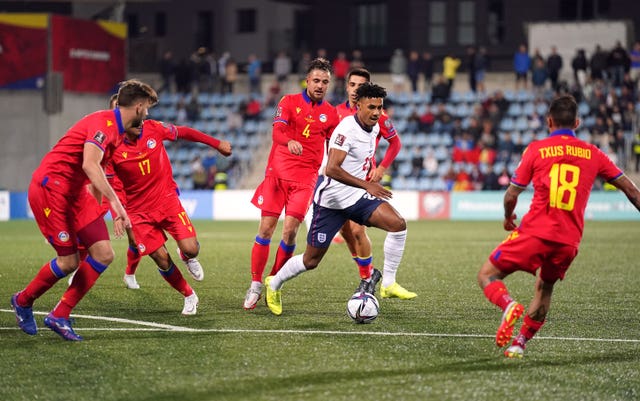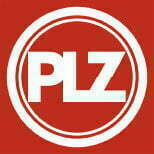Thomas Tuchel’s England have been drawn against Serbia, Albania, Latvia and Andorra in qualification for the 2026 World Cup.
The German officially takes over as head coach on January 1 and will take heart from the fact England have never lost to any of the teams they will face on the road to the tournament in the United States, Canada and Mexico.
Scotland are in a four-team group, and will face whichever team loses the Nations League quarter-final tie between Portugal and Denmark, along with Greece and Belarus.
Steve Clarke’s men also face Greece in a Nations League promotion-relegation play-off in March.
Wales are in a group featuring Belgium, North Macedonia, Kazakhstan and Liechtenstein as they aim to qualify for a second successive World Cup.
Wales met Belgium in qualifying for the last World Cup, and even more recently in the 2022 Nations League.
They famously beat Belgium 3-1 to reach the semi-finals of Euro 2016, but have not won any of the subsequent four meetings.
🤩 Our qualifying draw for the FIFA World Cup 2026 🏆 #GAWA pic.twitter.com/eqWmxSX3YP
— Northern Ireland (@NorthernIreland) December 13, 2024
The Republic of Ireland have been drawn against the winner of the Portugal v Denmark Nations League tie, along with Hungary and Romania.
Like Scotland, the Republic face a Nations League promotion-relegation play-off tie in March, in their case against Bulgaria.
Northern Ireland will face either Germany or Italy – each four-time World Cup winners – plus Slovakia and Luxembourg as they seek a first qualification since 1986.
England have only met Serbia once in their history as a single nation – at this year’s Euros where a Jude Bellingham goal proved decisive in a group stage encounter.
Group K is complete ☑️
Thomas Tuchel’s #ThreeLions have discovered their @FIFAWorldCup qualifying opponents! 👀 pic.twitter.com/a9rqHH3ZO7
— England (@England) December 13, 2024
England have won all six previous meetings with Albania – all World Cup qualifiers – and they last came across each other in qualifying for the last finals in Qatar. Gareth Southgate’s men beat Albania 5-0 at Wembley in November 2021.
Latvia will be new opponents at senior level for England, while Andorra were also in England’s group for qualifying for Qatar. England won the home encounter 4-0 and a 5-0 victory in the return.
Asked about facing Serbia and Albania, Tuchel told BBC Radio 5 Live: “They are always very talented individual players, a very emotional group, a very emotional crowd. So they can always surprise.
“We have to take this very seriously. It’s a first fixture with Latvia, so a new challenge for all of us.
“And then we are clear favourites, of course, against Andorra, but qualification is key now. Qualification is top priority. We have to be serious. We have to be determined, and we have to show what we’re up for in this group of five.”
Tuchel was asked if he was confident of finishing top of the group, and added: “I don’t see it as a given. The gap closes more and more between the big nations and the small nations. You see it in the Euros lately.

“There are no such thing as results that are already done before the match is played. The smaller nations have become stronger and stronger. So we have to earn our place. We have to earn our top spot.”
Wales head coach Craig Bellamy was pleased to have been drawn in a five-team group, and to be going back to Belgium where he worked at Anderlecht as assistant to Vincent Kompany.
“It’s a good group, we’re going to have to do our homework really well, and hopefully try and attack it and finish top of the group,” he told BBC Radio 5 Live.
Qualifying will begin in March for the five-team groups, with four-team groups getting under way in September.
Hi Belgium, it’s been a while! 😂
— Wales 🏴 (@Cymru) December 13, 2024
Sixteen European nations will qualify for the finals, which will feature 48 teams for the first time.
The winners of each group qualify automatically, with the runners-up then going into play-offs in March 2026 alongside the four best-ranked Nations League group winners who did not either win their World Cup qualifying group or finish runner-up.
Those play-offs will determine the final four qualifiers from Europe.
(function(i,s,o,g,r,a,m){i[‘GoogleAnalyticsObject’]=r;i[r]=i[r]||function(){
(i[r].q=i[r].q||[]).push(arguments)},i[r].l=1*new Date();a=s.createElement(o),
m=s.getElementsByTagName(o)[0];a.async=1;a.src=g;m.parentNode.insertBefore(a,m)
})(window,document,’script’,’//www.google-analytics.com/analytics.js’,’ga’);
ga(‘create’, ‘UA-72310761-1’, ‘auto’, {‘name’: ‘pacontentapi’});
ga(‘pacontentapi.set’, ‘referrer’, location.origin);
ga(‘pacontentapi.set’, ‘dimension1’, ‘By Jamie Gardner, PA Chief Sports Reporter’);
ga(‘pacontentapi.set’, ‘dimension2’, ‘393aec84-8a8c-4c29-b3d1-fafd2325717d’);
ga(‘pacontentapi.set’, ‘dimension3’, ‘paservice:sport,paservice:sport:football,paservice:sport:uk’);
ga(‘pacontentapi.set’, ‘dimension6’, ‘story’);
ga(‘pacontentapi.set’, ‘dimension7’, ‘composite’);
ga(‘pacontentapi.set’, ‘dimension8’, null);
ga(‘pacontentapi.set’, ‘dimension9’, ‘sport:football’);
ga(‘pacontentapi.set’, ‘anonymizeIp’, true);
ga(‘pacontentapi.send’, ‘pageview’, { ‘location’: location.href, ‘page’: (location.pathname + location.search + location.hash), ‘title’: ‘England draw Serbia, Albania, Latvia and Andorra in 2026 World Cup qualifying’});





